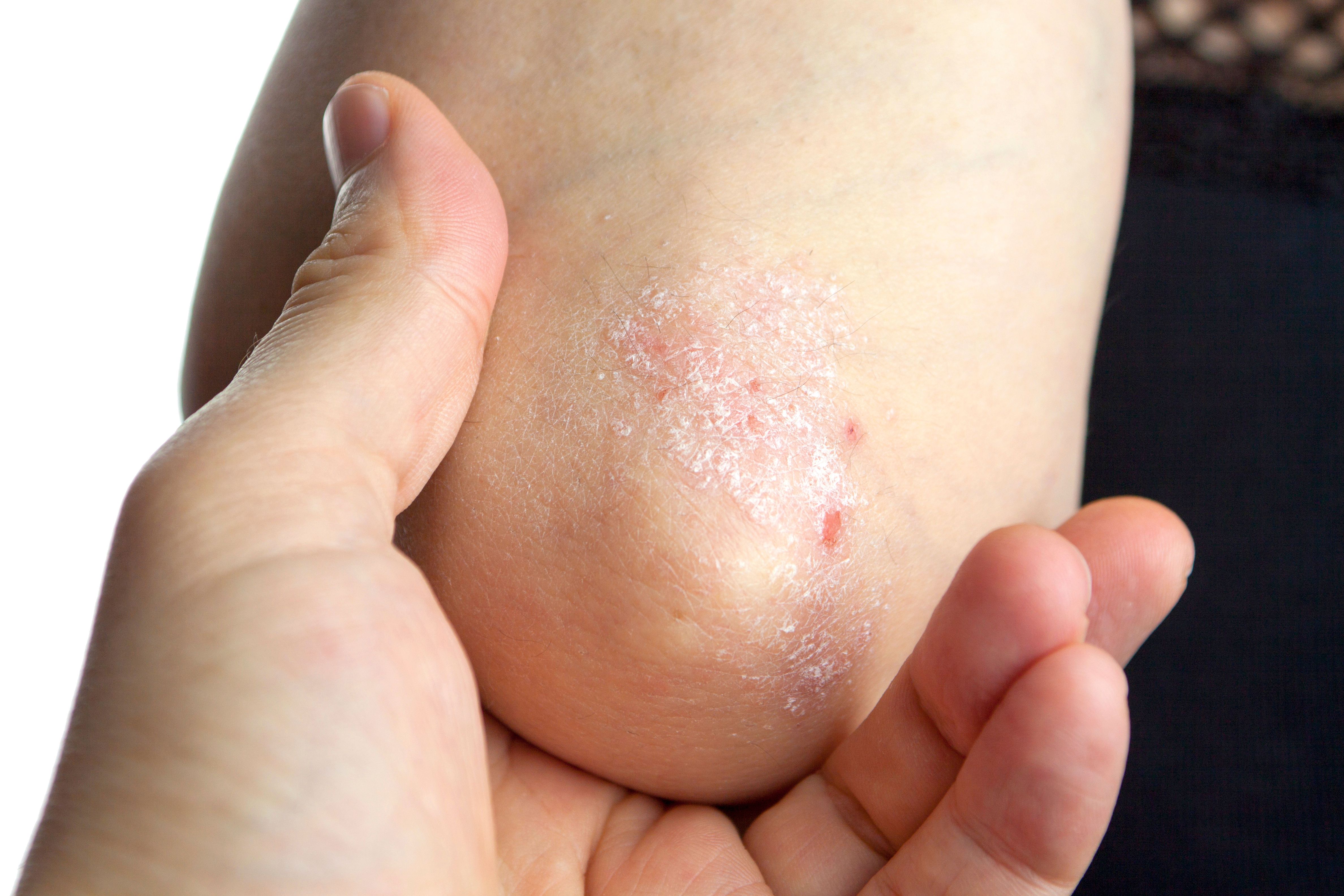- Case-Based Roundtable
- General Dermatology
- Eczema
- Chronic Hand Eczema
- Alopecia
- Aesthetics
- Vitiligo
- COVID-19
- Actinic Keratosis
- Precision Medicine and Biologics
- Rare Disease
- Wound Care
- Rosacea
- Psoriasis
- Psoriatic Arthritis
- Atopic Dermatitis
- Melasma
- NP and PA
- Skin Cancer
- Hidradenitis Suppurativa
- Drug Watch
- Pigmentary Disorders
- Acne
- Pediatric Dermatology
- Practice Management
- Prurigo Nodularis
- Buy-and-Bill
News
Article
Psoriasis and Psoriatic Arthritis Linked to Depression and Functional Impairment
Author(s):
Depression, functional impairment, and worsened quality of life are related in patients with psoriatic disease, according to a recent study.
hriana/Adobe Stock

A study published in Rheumatology and Therapy clarified the interconnected relationship between functional impairment, quality of life (QOL), and depressive symptoms in patients with psoriasis and psoriatic arthritis (PsA), highlighting the need for a more patient-centered approaches to address the residual burden of disease and improve patient satisfaction with health.
The study results underscored the importance of early diagnosis and anti-inflammatory therapy to prevent long-term damage, disability, and mental health complications. However, additional research is needed to determine the exact relationship between functional impairment and depression. The study also suggested that depression is often underdiagnosed and undertreated in patients with psoriatic disease, emphasizing the need for improved screening and access to mental health services.
Psoriasis impacts about 2% to 3% of the population, and about 30% of patients with psoriasis develop PsA. Depression is a common comorbidity in patients with psoriatic disease. Patients with psoriatic disease may experience negative body image, reduced self-esteem, discomfort, pain, and disability, which can all impact mental health. Depression and anxiety impact approximately 33% and 20%, respectively, of patients with PsA. The authors sought to assess the disease burden and factors predicting functional impairment and depression in patients with psoriatic disease.
A cross-sectional survey was conducted in a cohort of 300 patients with psoriatic disease (psoriasis: n = 111; PsA: n = 189) who were treated at either a university hospital dermatology outpatient clinic or a rheumatology outpatient clinic (n = 150 each). Questionnaire-based assessments were used to quantify signs of arthritis (Psoriasis Epidemiology ScreeningTool), functional status (Functional Questionnaire Hannover), QOL (World Health Organization Quality of Life Brief Version), and depressive symptoms (Patient Health Questionnaire 9).
The mean age (SD) of the patients was 54.3 (14.5) years, and 54.0% of the cohort was male. The average disease duration was 15.4 (12.5) years. Of those with psoriasis, the mean age was 51.0 (16.0) years and 49.5% were men. For PsA, the mean age was 56.2 (13.3) years and 56.6% were men. Patients with PsA had a higher mean serum C-reactive protein concentration compared to patients with psoriasis(P = .016), and smoking was more prevalence among patients with psoriasis vs PsA (57.3% vs 22.0%; P < .001).
Despite receiving treatment, patients with psoriasis and psoriatic arthritis experienced a persistently high burden of disease. Joint pain was reported in multiple regions, with variations in the frequency and distribution patterns of symptoms between the 2 groups. Functional impairment in everyday life was found to be independently associated with the diagnosis of psoriatic arthritis (odds ratio [OR], 9.56; P = 0.005), depressive symptoms (OR, 5.44; P < 0.001), and age (OR, 1.04; P = 0.033).
Mild depressive symptoms were demonstrated in 54% and 69% of patients with psoriasis and psoriatic arthritis, respectively. In a logistic regression model, depressive symptoms were independently associated with functional impairment (OR, 4.50; P = 0.003), axial complaints (OR, 2.80; P = 0.030), diagnosis of psoriatic arthritis (OR, 2.69; P = 0.046), and the number of joint regions with complaints (OR, 1.10; P = 0.032).
Although the accrual of damage and disability over time could explain the relationship between worsening functional capacity in PsA compared with psoriasis, functional capacity was not found to be associated with disease duration in this analysis.
The authors noted that functional impairment may lead to work disability, encompassing absenteeism, diminished work effectiveness, or loss of productivity, ultimately posing a substantial socioeconomic burden on individuals, their families, and society as a whole. The authors called for more early diagnosis of functional impairment and initiation of anti-inflammatory treatments to mitigate the risk of disability.
Limitations of the study involved its cross-sectional design, preventing the longitudinal tracking of patients to assess outcomes, and reliance on a questionnaire-based methodology that hinged on patient-reported measures.
Reference
Frede N, Hiestand S, Schauer F, et al. Psoriasis and psoriatic arthritis have a major impact on quality of life and depressive symptoms: a cross-sectional study of 300 patients. Rheumatol Ther. 2023;10:1655-1668. doi:10.1007/s40744-023-00602-9
[This article was originally published by our sister publication, American Journal of Managed Care.]





